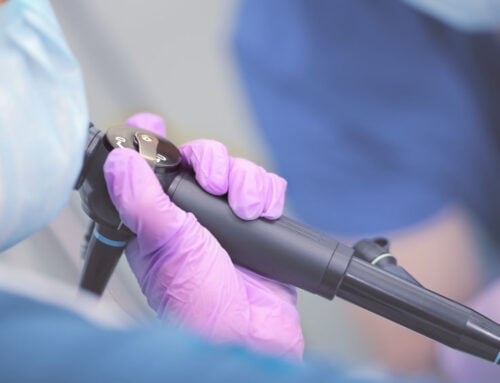Do I Need A Colonoscopy?
Globally, colorectal cancer is the third most diagnosed cancer. Each year an estimated 151,030 adults in the US are diagnosed with colorectal cancer. As with many types of cancer, early detection is key to a successful outcome. Colonoscopies, an exam used to look for changes in the large intestine, are key to identifying and treating colorectal cancer. Doctors may recommend a colonoscopy to certain patients to explain a change in bowel habits, blood in the stool, and consistent pain in the abdomen. Other signs to keep an eye on include, unexplained weight loss, fatigue, and anemia.

Changes in bowel habits
During a colonoscopy, a flexible, lighted tube called a colonoscope is inserted into the rectum and the entire colon to check for polyps or cancer. Changes in bowel habits, such as constipation and diarrhea lasting more than a few days are signs to schedule a colonoscopy. In addition to pain and irregularity, a feeling that the bowel does not empty fully can signify the presence of polyps.
What your blood is telling you
Cancer in the colon or rectum almost always begins as a polyp, which is a noncancerous growth that develops in the inner lining of the colon or rectum. Rectal bleeding and blood in the stools are gastrointestinal symptoms commonly associated with polyps that could turn into colorectal cancer. However, in many cases, polyps cause little to no symptoms. When symptoms are present, polyps can cause unexplained weight loss and unexplained iron deficiency anemia in addition to bleeding. Polyps and serrated polyps are common in many average-risk individuals 50 years of age or older. To reduce risk, the average patient should begin regular screenings at age 45. Depending on family history and overall risk factors, some people begin annual colonoscopies at a much younger age.
Belly fat
While colorectal cancer can mimic the symptoms of other bowel conditions, unexplained, prolonged abdomen pain can be an early warning sign. For people carrying excess weight, the risk of colon cancer goes up. The risk goes up with a higher waist circumference and more fat stored within the abdominal
cavity, and waist circumference. If cramping, pain, or discomfort in the lower abdomen lasts more than a few weeks, a colonoscopy may be in order.
Detecting colon problems early
As the third most diagnosed cancer, detecting colon cancer early is vital to improving outcomes. Changes in bowel habits, blood in the stool, and prolonged abdominal pain are all signs of scheduling a colonoscopy. Many times, polyps have no symptoms. If symptoms are present, bleeding and stomach pain are common. While no procedure is fool-proof, regular screenings save countless people from developing advanced colorectal cancer.



